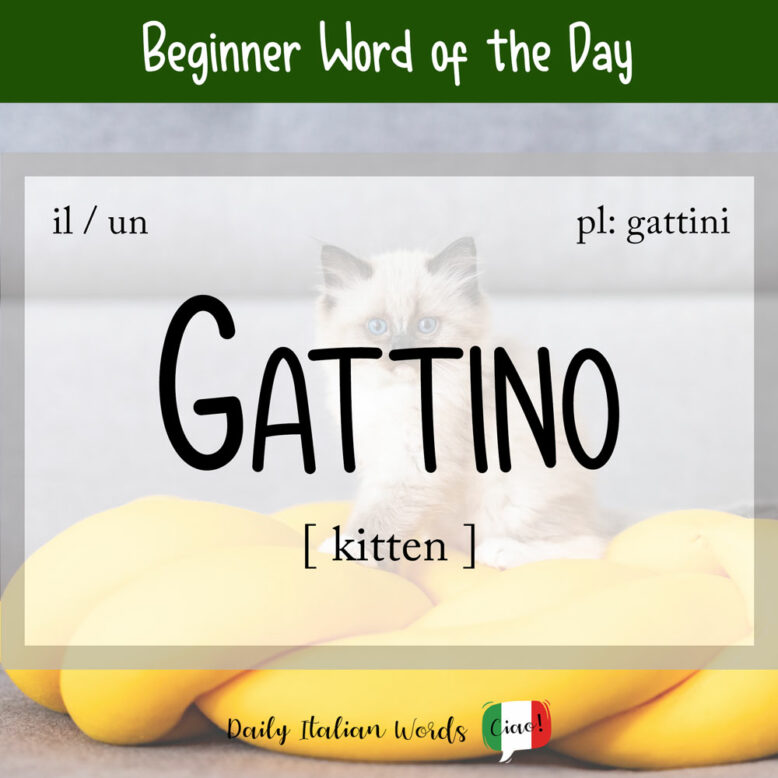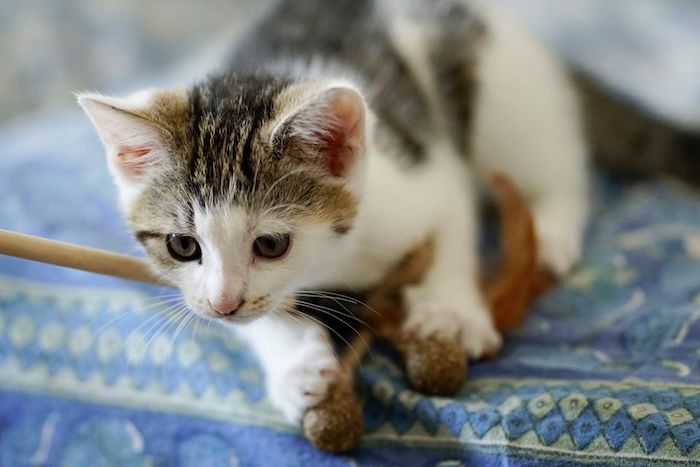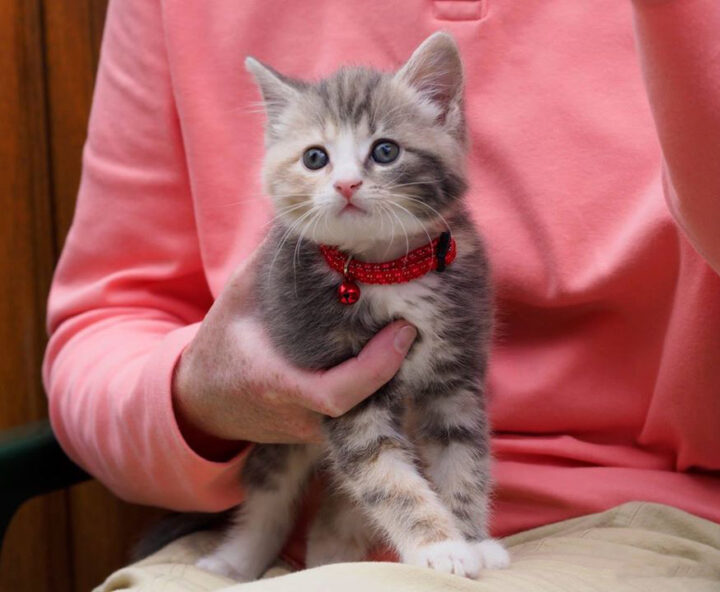In Italian, the diminutive suffixes -ino / -otto / -etto are often added to the end of animal names to denote their offspring. A good example of this is our word of the day, gattino (masculine, plural: gattini), which means kitten. Gattino is simply the word gatto (cat) with -ino attached to the end.

When referring to a female kitten, you are free to change the ending to -ina, the feminine form of -ino.
Ma che bella gattina! Possiamo adottarla?
What a beautiful kitten! Can we adopt her?

An alternative translation for kitten is micino which comes from the word micio, also meaning cat.
Important: Because -ino means small, you can also use it to describe animals of a small size. It may also be used for adult animals as a term of affection. For example, we often call our adult cat gattina when she does something cute.
Below are a few other examples of baby animals that take the –ino / -otto / -etto suffixes:
- cagnolino = puppy, small dog (comes from cane = dog)
- leoncino = lion cub (comes from leone = lion)
- maialino = piglet (comes from maiale = pig)
- tigrotto = tiger cub (comes from tigre = tiger)
- lupetto = wolf cub (comes from lupo = wolf)
- elefantino = baby elephant (comes from elefante = elephant)
Note that you can also use the word cucciolo, meaning cub, to talk about many different kinds of baby animals including cats, dogs, bears, and wolves, just to name a few.
Tu sai come prenderti cura di un cucciolo di gatto?
Do you know how to take care of a kitten?

Heather Broster is a graduate with honours in linguistics from the University of Western Ontario. She is an aspiring polyglot, proficient in English and Italian, as well as Japanese, Welsh, and French to varying degrees of fluency. Originally from Toronto, Heather has resided in various countries, notably Italy for a period of six years. Her primary focus lies in the fields of language acquisition, education, and bilingual instruction.


